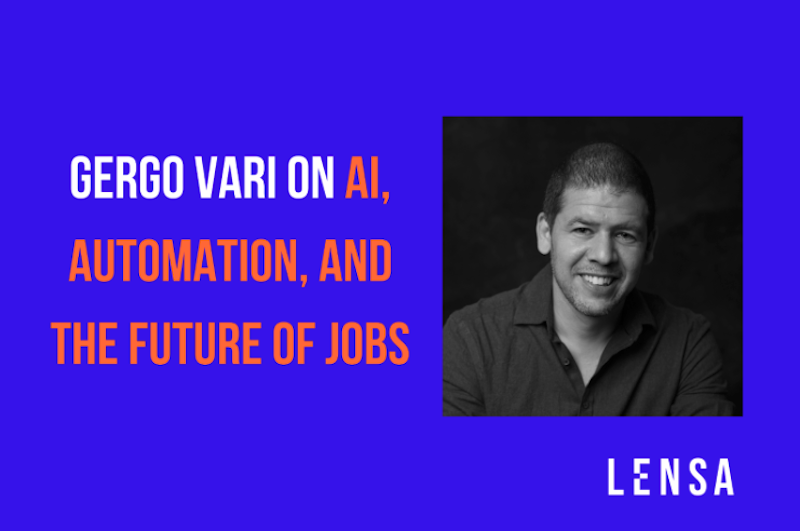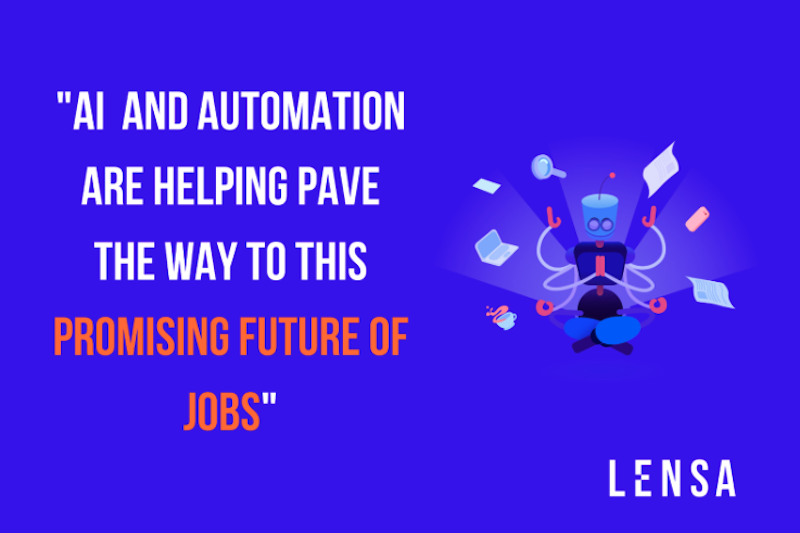
HR Tech Entrepreneur Gergo Vari on AI, Automation, and the Future of Jobs
By Gergo Vari, founder and CEO of Lensa
Automation has affected all sectors of activity. And recruitment is no exception.
In today’s labor market, where attracting and keeping top talent is more challenging than ever before, companies that implement AI and automation into their recruitment process stand to gain a significant edge over their competitors.
I founded the AI-powered online jobs portal Lensa in 2016 with the conviction that technology such as AI, machine learning, and automation could be used to help match job seekers and companies. And the results have surpassed even our (admittedly) lofty expectations.
We now have over 20 million registered users (with around 400,000 coming onboard each month). We receive close to 200,000 new CVs and deliver over 85 million job alerts to our members each month.
Automation Means Personalisation

At Lensa, we believe that implementing automation can help HR professionals by significantly reducing (if not outright eliminating) repetitive, menial tasks.
This means that they now have more time and energy to focus on innovation and provide more personalized attention. The result is a better candidate experience, which goes a long way to improving the company’s image and thus helping them attract and retain top talent.
Artificial Intelligence – Providing a Boost in Diversity and Equality
All HR professionals – regardless of their best intentions – are susceptible to biases. This means that they, consciously or unconsciously, make decisions that are not always based on good business sense.
In the past, this perfectly human phenomenon has led to the propagation of certain segments of our population having access to opportunities while other segments, despite their qualifications, see fewer opportunities.
This is what’s known as hiring bias. And it not only prevents people from making the most of their unique talents, but it also prevents companies from benefiting from the contributions they are not given the chance to make.
In recent years, we have seen a significant decline in hiring bias across a wide variety of industries. And, consequently, we’ve seen an increase in diversity in the workforce.
Undoubtedly, the increase in the public consciousness of this problem has contributed greatly to this improvement. But we should not fail to recognize the contribution AI has made to this, as well.
AI and machine-learning algorithms, when they are implemented in the recruitment process, allow recruiters and HR managers to make decisions that are based more solidly on data rather than assumptions or biases.
It’s worth mentioning that AI is only as good as the algorithms they are programmed to follow. And, thus, AI recruitment programs should be regularly audited for potential biases.
The Future of Jobs
We have seen the future of jobs. (At Lensa, we are getting glimpses of it every day.) And I, for one, think is very promising indeed.
- HR professionals spend less time on menial tasks
- HR professionals dedicate more of their energy to innovation and improved candidate experience, onboarding, and training
- Job seekers finding better matches – and more quickly, too
- A significant increase in employee satisfaction with their jobs, thus leading to greater productivity
- A decrease in hiring bias and thus an increase in diversity in the workplace
AI and automation are helping pave the way to this promising future of jobs. And I am excited (even proud) to be a witness of it all.
About the author: Gergo Vari is the founder and CEO of Lensa. He is passionate advocate for recruiting and human resources tech that puts people first. He is also a member of the Forbes Tech Council.
